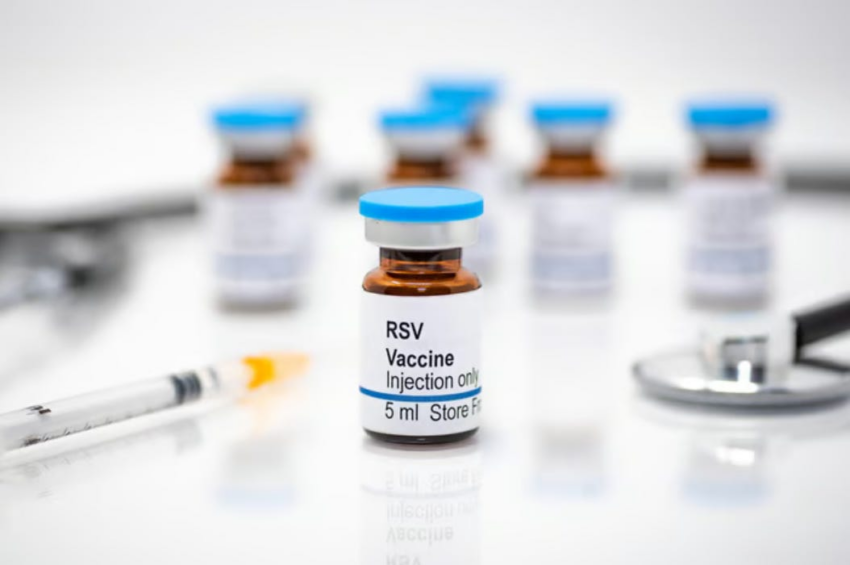Dr. Robert Malone:
Reprinted by permission from Trial Site News
Junchao Li, Affiliated Taizhou People’s Hospital of Nanjing Medical University and colleagues aimed to evaluate post-marketing safety signals for Food and Drug Administration (FDA)-approved respiratory syncytial virus (RSV) vaccines—Arexvy (GSK) and Abrysvo (Pfizer)—by analyzing reports submitted to the Vaccine Adverse Event Reporting System (VAERS) from May 2023 to December 2024.
Source: Li, Junchao, Zhiyuan Zhang, and Meixiang Wang. “Post-licensure safety of respiratory syncytial virus vaccines, Vaccine Adverse Event Reporting System, United States, May 2023–December 2024.” Preventive Medicine Reports, vol. 56, Aug. 2025, Article 103150.
Study Design and Method
This retrospective surveillance study assessed 6,790 VAERS reports following RSV vaccination. Researchers conducted descriptive analyses, clinical reviews of serious adverse events (AEs), and empirical Bayesian data mining to identify disproportionate reporting signals. Outcomes of interest included Guillain-Barré Syndrome (GBS), preterm delivery, anaphylaxis, and inappropriate administration during pregnancy.
Findings
Among the post-licensure storm clouds trailing the nation’s first RSV vaccines, a few troubling signals flash like distant lightning. The rare, but serious neurological condition Guillain-Barré Syndrome (GBS) surfaced in 81 reports, 59 of which met rigorous diagnostic criteria. Nearly three-quarters of those affected required hospitalization. One case, following administration of Arexvy, ended in death.
Pregnancy-related complications cast a darker shadow still. Among women who received RSV vaccines during pregnancy—especially Pfizer’s Abrysvo—88 reports of preterm birth emerged, some just days after injection. This signal wasn’t subtle; data analysis flagged the frequency of preterm birth with unusually high strength, suggesting the pattern may be more than coincidence. Ten stillbirths and seven cases of preeclampsia further deepen the concern.
The vaccine safety system also recorded 53 deaths, the majority in elderly recipients (median age: 81). The most common culprits: sudden cardiac arrest, respiratory failure, and GBS. While causality cannot be confirmed from VAERS data alone, the timing and clustering of these events deserve serious attention.
Less deadly but still significant were reports of anaphylaxis—14 confirmed cases of severe allergic reaction, some requiring hospitalization—and 44 cases of cellulitis, mostly mild, occurring at or near the injection site.
In a disquieting administrative twist, 367 pregnant individuals were mistakenly given Arexvy—despite its lack of approval for use during pregnancy. While most of these women reported no adverse outcomes, two suffered serious complications, including one case of hypoxic ischemic encephalopathy, a severe condition affecting the infant’s brain due to oxygen deprivation.
Finally, data mining revealed disproportionately high reporting of serious outcomes—GBS, preterm delivery, stillbirth, premature rupture of membranes—especially among younger recipients of Abrysvo. These are not faint statistical whispers but loud signals requiring immediate vigilance and further study.
In sum, while most reports were non-serious and consistent with prior expectations, this post-market snapshot reveals cracks in the veneer of safety for certain populations. The message is not panic—but precision. For the most vulnerable among us—the pregnant, the elderly, and the immunocompromised—ongoing surveillance may mean the difference between prevention and harm
Limitations
As a passive surveillance system, VAERS is subject to underreporting, lack of denominator data, and stimulated reporting biases. The study design does not establish causality. Clinical confirmation was incomplete for several death and GBS reports. Reporting heterogeneity also complicates interpretation across age, vaccine type, and pregnancy status.
Funding and Disclosure
No external funding was received. Authors declared no conflicts of interest. The study was approved by the Ethics Board of Taizhou People’s Hospital and used publicly available, anonymized VAERS data.
Conclusion and Implications
While most adverse events reported after RSV vaccination were non-serious, safety signals for GBS and preterm delivery—especially following Abrysvo in pregnant women—warrant sustained post-market vigilance. The study highlights the risks of off-label administration (e.g., Arexvy during pregnancy) and emphasizes the need for education among healthcare providers to prevent administration errors. Notably, despite emerging safety concerns, the study’s real-world findings remain consistent with Phase III trial signals for GBS and pregnancy-related AEs.
Click this link for the original source of this article.
Author: Robert W Malone MD, MS
This content is courtesy of, and owned and copyrighted by, https://rwmalonemd.substack.com and its author. This content is made available by use of the public RSS feed offered by the host site and is used for educational purposes only. If you are the author or represent the host site and would like this content removed now and in the future, please contact USSANews.com using the email address in the Contact page found in the website menu.










